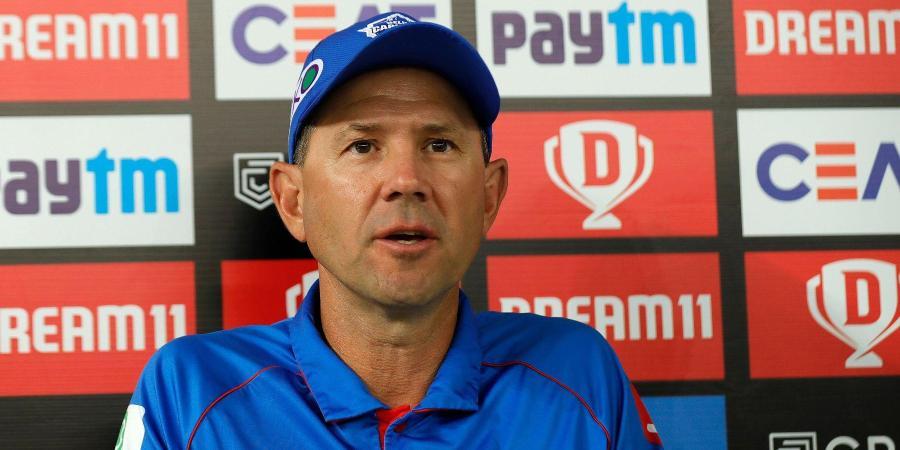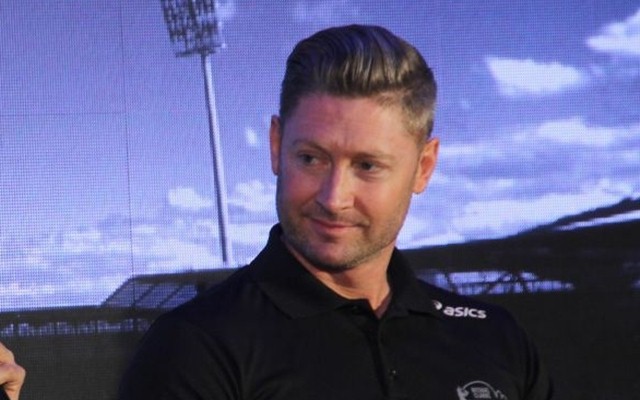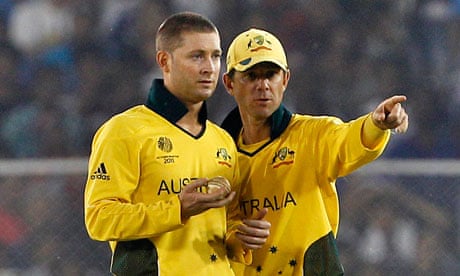Michael Clarke, former Australia captain has revealed that he saved his predecessor two-time World Cup-winning skipper Ricky Ponting from getting dropped from the national side after taking over the reins of the national team.
It’s not common for Australian captains to continue playing after stepping down as they usually retire while still in charge. Allan Border, Mark Taylor, Steve Waugh, and even Michael Clarke himself, are some of the examples.

Michael Clarke Fought To Keep Ricky Ponting In Team When He Took Captaincy
However, it wasn’t the case with Ricky Ponting, one of the most successful captains in Test history. Ricky Ponting stepped down from the Australian captaincy after the 2011 World Cup, and expectably Michael Clarke took over. Ricky Ponting remained committed to the team’s cause and received backing from his long-time vice-captain, who believed in his experience and ability.
_1621750605123_1621750621131.png)
Speaking to former NRL star Brett Finch on his Uncensored podcast, Michael Clarke revealed that Australian selectors were keen to move on and drop Ricky Ponting to provide the new leader with a fresh environment.
“When I took over the captaincy, that’s why I fought to keep Ricky,” said Michael Clarke.
“The selectors said, ‘Very rarely does a captain stand down and stay in the team, so if you don’t feel comfortable … it’s time for Ricky to go’.
“I said, ‘We need him. We need him for his batting, but he’ll be another coach for us’. So I fought hard to keep him, I wanted him there. I thought he played a big part in helping that younger generation get to the level we needed to. If he was batting at 80 per cent, he was better than anybody else at No. 3 or No. 4. We think the grass is greener all the time. Very rarely is it.”
Although Ricky Ponting has admitted that his form tailed off in the last phase of his career, he still had the backing of his captain and ended up playing 16 Tests under Michael Clarke between 2011 and late 2012, scoring 1,015 runs at an average of 37.59.
This phase brought his career batting average down from the mid-50s to 51.85. Ricky Ponting was the captain of the Australian cricket team when they won the 2003 and 2007 World Cup.
Ricky Ponting played 375 ODIs for Australia and scored 13704 runs at an average of 42.04. He also has 30 centuries and 82 fifties. Even in the Test format, Ricky Ponting has 13378 runs in 168 matches with 41 hundred. Ricky Ponting is considered one of the most successful captains in international cricket history, with 220 victories in 324 matches with a winning ratio of 67.91%.
Michael Clarke Never Dreamt Of Captaining Australia
In 2013, Ricky Ponting revealed in his autobiography that he didn’t feel as supported by Michael Clarke, the vice-captain. The latter admitted to the same in his autobiography too. In an interview with Brett Finch, Michael Clarke admitted that he found it hard to be Ricky Ponting’s understudy because of the inevitable wait.
“I dreamt of playing for Australia, but I never dreamt of captaining Australia. I found it really difficult when I was vice-captain that there was an expectation that I was always going to be the next captain. I hated that. I would rather have stayed a youngster or be captain. I wasn’t very good at the in-between,” added the 40-year-old.

Michael Clarke debuted for Australia in 2003 and was immediately tipped to be a future Australian captain. He was promoted to the role of vice-captain after Adam Gilchrist’s retirement in 2008. Michael Clarke led Australia between 2011 and 2015. During his tenure, he became the fourth Australian captain after Allan Border, Steve Waugh, and Ricky Ponting (twice) to win the ODI World Cup.
